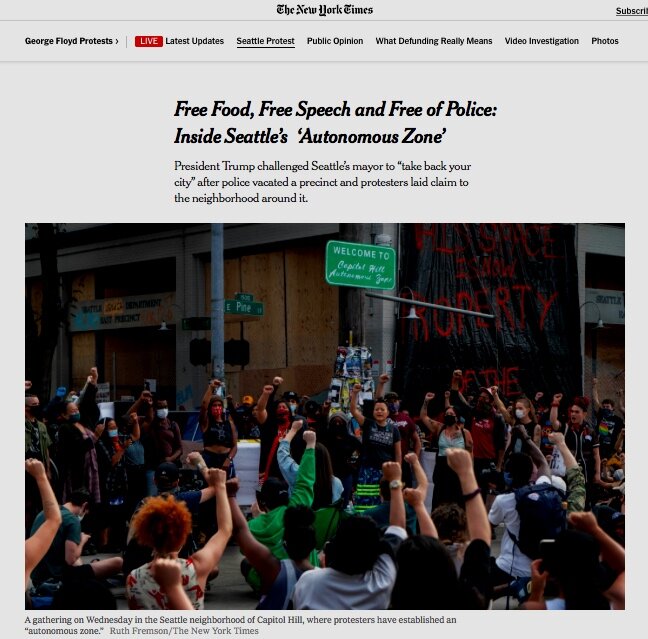Schematically, I’m interested in the reasons for the uneven development between sensing and doing (there is much more interest in data collection than in automating and mechanizing everyday life and production), where the emphasis on sensors, it seems to me, is fundamentally related to the economic dominance of data collection companies, and the need to efficiently create profitable deployments. I’m interested in whether the de-emphasis on robotic mechanical and other systems is perhaps related to an historically much longer failure to produce human environments that provide abundance and human comfort and care—mirroring (and increasingly playing a part in) the development of cities, which provide for people only at a cost. We are now in the midst of what the National Science Foundation calls the ‘Sensor Revolution’—“connecting the Internet back to the physical world we live in—in effect, giving that world its first electronic nervous system. . . . [A]n outpouring of devices that monitor our surroundings.” (1) Wearable technologies monitor our vitals; humidity sensors detect fire risk; sensors in wells and streams report on water quality. Perhaps the most Foucauldian ‘disciplinary’ instance of these sensors is DARPA’s ARGUS-IS drone-piloted aircraft, which uses an unprecedented 1.8 gigapixel sensor to record urban space-time (and allows investigators to go back in time to surveil a particular place or to follow a particular person), or the or the NSA’s PRISM surveillance program (which also enables retroactive, targeted data mining), but there is also ‘Google Now’—an analytical tool that is intended to predict a user’s behavior based on previous data collection matched with current user behavior and Facebook’s data collection, along with countless other private sector commercial uses of sensors. Sensors are increasingly able to track physical movement, with GPS and RFID trackers and sensors, San Francisco-based start-up Planet Labs’ fleet of hundreds of "dove" satellites tracking daily global movement and development, ‘smart’ meters that report on energy use and resource consumption, "personal assistant" voice-controlled computers that listen to conversations, etc.
In short, I’m interested in the political economy of this sensing—how it is situated in global economic history; how it is implicated in and transforms existing regimes of power; what discourses and rhetorics are involved in its development, extension and proliferation; how it enables certain possibilities and forecloses others; and how its effects and benefits are unevenly distributed.
One dimension of this is the collection of data as a transaction fee for the use of products and platforms. In a rational economic exchange, actors produce something of value in order to receive something of value. Today, these exchanges are increasingly mediated by digital platforms, which often collect data as a ‘transaction fee’ for this mediation. The value proposition of the various platforms does not operate like a normal sale, however. Instead of straightforwardly exchanging money for goods, users are offered a service that gives the business that creates the platform insight into how to control human behavior without this cost being perceived by the user. As entrepreneur-turned-investor/business theorist Peter Thiel states in his highly influential book Zero to One, “[c]reating value is not enough—you also need to capture some of the value you create.” (2) Thiel is rare among Silicon Valley’s thinkers—and not just because of his public support for Donald Trump. He is one of the few widely-read business writers who is privy to certain of capitalism’s contradictions. Thiel seems to possess a general grasp of what Marxian economists call the ‘tendency of the rate of profit to fall’ (TRPF)—outlined by Marx in Ch. 13 of Capital, vol. III (though as a self-described libertarian, he certainly doesn’t cite Marx). Because of increased expenditure on fixed capital to reduce unit cost in the face of competing firms, plus competition over prices, the margin of profit per unit becomes extremely low in competitive industries. Thiel’s conclusion is that companies today should strive to be monopolies, and that monopolies are the only really worthwhile enterprises. (3) In most cases, this quest for monopoly status necessarily involves gathering enough data to understand how to dominate their sector of the market. As these companies use data to act back upon publics and populations, their operations become increasingly ‘governmental,’ in the Foucauldian sense. (4)
In the late twentieth century, so-called ‘neoliberal’ governing proceeded through the making visible of market structures, and the encouragement of actors—both enterprises and individuals—to behave as market actors and as human capital. Especially during and after the New Deal, this state strategy increasingly relied on private firms to carry out the hard work of producing and shaping this economic ‘arrangement of things,’ with the burden of governing shifting to a greater and greater degree onto private enterprise and away from the state. Whereas states—ruling through sovereign power—rely on a Weberian monopoly on violence, how are private enterprises increasingly competing for a monopoly of affect (are these the monopolies that Thiel is suggesting entrepreneurs should be building?), with which to shape the pre-discursive desires and drives of subjects? (5) How are large firms using data and sensors to inform these decisions—that is, how does data allow companies to govern over subjects, and what does this mean for the state? How might resurgences of state violence be read as an attempt to assert their dominance once again, in the face of these developments, and what are the class dimensions of this? Perhaps certain classes—those who are viewed as being disposable or exchangeable in the production process—remain under sovereign state control (as evidenced by demographically-concentrated policing and police violence), while those seen as economically valuable/productive (those behaving as human capital), who can be sensed and influenced through digital tools, are governed through affect? This is the general constellation of issues I’m interested in exploring.
Notes:
(1) “The Sensor Revolution,” National Science Foundation website, https://www.nsf.gov/news/special_reports/sensor/nsf_sensor.jsp (accessed 12/5/2016).
(2) Peter Thiel and Blake Masters, Zero to One: Notes on Startups, or, How to Build the Future (New York: Crown Business Press, 2014), pg. 23.
(3) Venture capital’s role in defining what success looks like is not to be ignored here: in order to be worthwhile, venture capitalists demand an incredibly high return on investment on the minority of companies that succeed in order to make back the sum of their losses, plus large profits.
(4) In researching how urban governance proceeded through the twentieth century, I was struck by how power seemed to shift from ‘sovereign’ to ‘disciplinary’ to increasingly ‘governmental’ (in Foucault’s lexicon) strategies. Rather than engaging in costly policing efforts, power-wielding agents found ways to order space, “artificially . . . arranging things so that people, following their own self-interest, will do as they ought.” Scott, David. “Colonial Governmentality,” Social Text, No. 43 (Autumn, 1995), pg. 202-03. Here Scott is citing Jeremy Bentham’s “Fragment on Government” as a means of attaining the meaning of Foucault’s concept of governmentality, which is a highly illuminative theoretical tool for the present study.
(5) Max Weber, in Politics as a Vocation, tells us that sovereign power is reliant on 'monopoly of the legitimate use of physical force.’ I’m interested in how affect is an increasingly important part of governmentality—a relationship I hope to explore more deeply in my research. I am interested in the relationship between neoliberalism, identity, affect and debt, and their implications for power and governance, and the ways in which the effects of competitive ‘short-termism’ of subjects viewing and investing in themselves as ‘human capital’ supplants a discursive politics of ideology with an affective politics of identity, and the degree to which the resultant oppositional identity politics erodes the reproductive capacities of the ‘State.’ Maurizio Lazzarato—one of many scholars to investigate the relationship between neoliberalism and governance—privileges the role of debt in this configuration, claiming that “[d]ebt constitutes a new technique of power.” According to him, “[d]ebt is the technique most adequate to the production of neoliberalism’s homo economicus. [Its subjects] feel compelled to act, think, and behave as if they were individual businesses.” As such, I’m interested in whether neoliberal subjects—while capable of making promises (in the Nietzschean sense), and governed through affective means—are unlikely to be effective stewards of the commonly-held externalities or organizational structures—including state structures—without which production encounters internal, limiting contradictions. Maurizio Lazzarato, Governing by Debt, trans. Joshua David Jordan (South Pasadena, CA: Semiotext(e), 2015), pg. 69-70.


















